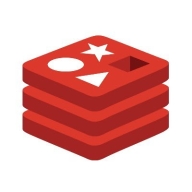

Find out in this report how the two Database as a Service (DBaaS) solutions compare in terms of features, pricing, service and support, easy of deployment, and ROI.
In Bangladesh, digital banking is becoming prominent within a couple of years, so all banking systems will be digital.
The technical solution and support are top-notch.
Data migration and changes to application-side configurations are challenging due to the lack of automatic migration tools in a non-clustered legacy system.
The solution is stable, resilient, and doesn't crash under pressure.
Redis is fairly stable.
With the advent of generative AI, adding functionality where current administrative activities could be automated would be beneficial.
It would be beneficial if Oracle could offer features similar to those provided by open-source platforms like Postgres, such as a multi-core-based platform and a shared node database.
Data persistence and recovery face issues with compatibility across major versions, making upgrades possible but downgrades not active.
Prices are high.
Since we use an open-source version of Redis, we do not experience any setup costs or licensing expenses.
The encryption level, resilience, and secure features from both clients, particularly the resilience aspect of Oracle Database, are highly valuable.
The valuable features include availability, agility, and scalability.
It functions similarly to a foundational building block in a larger system, enabling native integration and high functionality in core data processes.
| Product | Market Share (%) |
|---|---|
| Oracle Database as a Service | 8.2% |
| Amazon RDS | 20.1% |
| MongoDB Atlas | 13.9% |
| Other | 57.8% |
| Product | Market Share (%) |
|---|---|
| Redis | 20.6% |
| Amazon ElastiCache | 24.3% |
| Google Cloud Memorystore | 19.3% |
| Other | 35.8% |


| Company Size | Count |
|---|---|
| Small Business | 22 |
| Midsize Enterprise | 18 |
| Large Enterprise | 31 |
| Company Size | Count |
|---|---|
| Small Business | 11 |
| Midsize Enterprise | 3 |
| Large Enterprise | 8 |
Oracle Database Cloud Service combines the power of Oracle Database, with the unique capabilities of the Oracle Cloud. The service provides a secure, automated data management platform that leverages on demand Oracle Cloud Infrastructure services via a simple web based user interface and RESTful API. Oracle Database Cloud Service provides elastic database services for development, test, and production environments of custom and packaged online transaction processing (OLTP), data warehousing, and mixed workload applications. It enables businesses to reap all Oracle Platform as a Service (PaaS) benefits including subscriptionbased, self-service access to reliable, scalable, and elastic cloud environments and accelerates time to value by simplifying the provisioning and administration of Oracle databases.
Redis offers high-speed, in-memory storage, renowned for real-time performance. It supports quick data retrieval and is used commonly in applications like analytics and gaming.
Renowned for real-time performance, Redis delivers high-speed in-memory storage, making it a favorite for applications needing quick data retrieval. Its diverse data structures and caching capabilities support a broad array of use cases, including analytics and gaming. Redis ensures robust scalability with master-slave replication and clustering, while its publish/subscribe pattern renders it reliable for event-driven applications. The solution integrates smoothly with existing systems, minimizing performance tuning needs. Although documentation on scalability and security could be improved, Redis remains cost-effective and stable, commonly utilized in cloud environments. Enhancing integration with cloud services like AWS and Google Cloud and refining GUI may improve usability.
What are the key features of Redis?Redis finds application across industries for tasks like caching to improve application performance and speed, minimizing database load. It enables real-time processing for session storage, push notifications, and analytics. As a messaging platform, Redis handles high traffic and supports replication and clustering for cross-platform scalability.
We monitor all Database as a Service (DBaaS) reviews to prevent fraudulent reviews and keep review quality high. We do not post reviews by company employees or direct competitors. We validate each review for authenticity via cross-reference with LinkedIn, and personal follow-up with the reviewer when necessary.